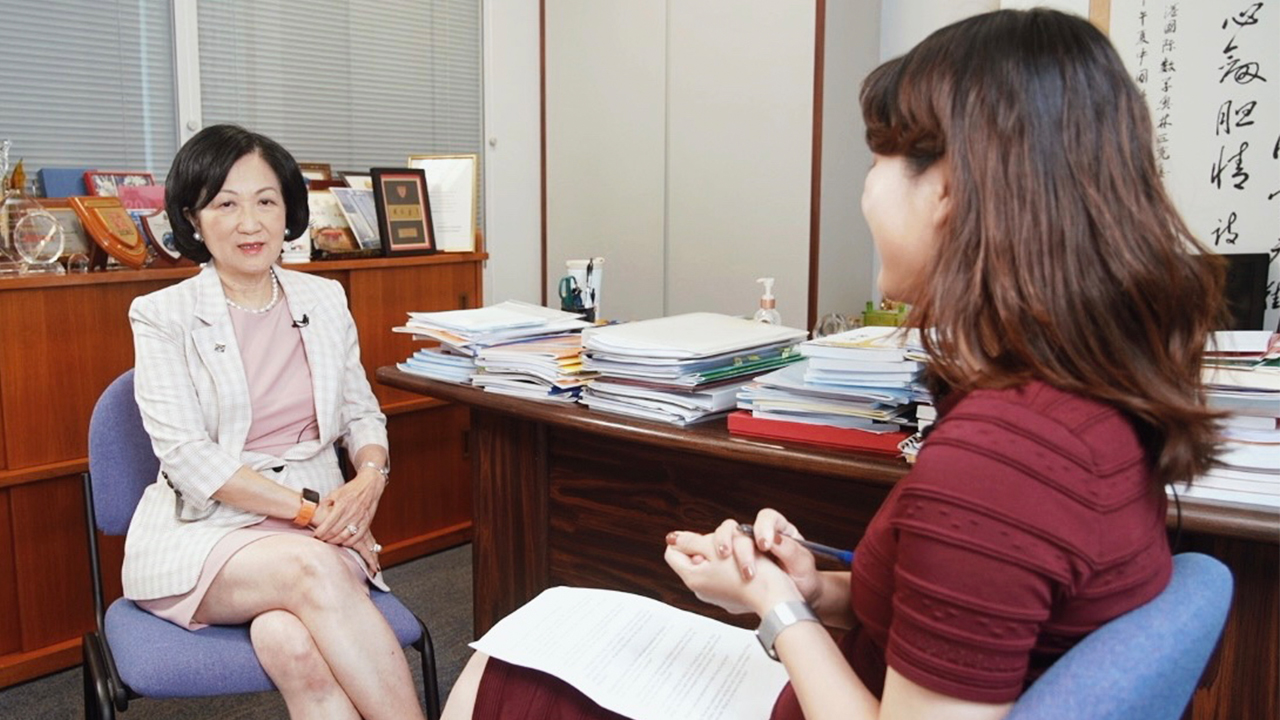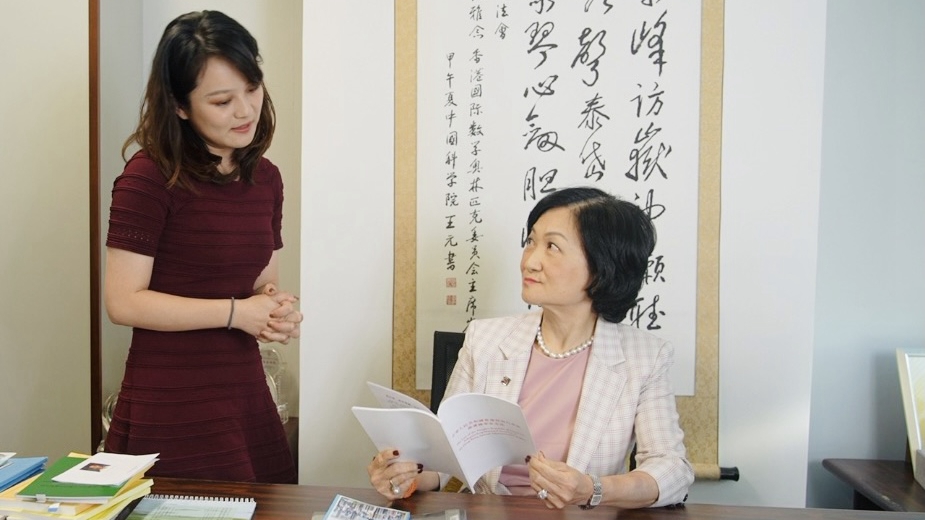"So long as they support the constitution, the basic law and they are loyal to the Hong Kong Special Administrative Region (HKSAR), my former pro-democratic colleagues, they're welcome to take part in the Legislative Council (LegCo) elections in December," said Regina Ip Lau Suk-yee, member of the LegCo in the HKSAR.
CGTN's Dong Xue sat down with Ip who shares her views of the revamped electoral system before the upcoming elections.
Ip also defended the introduction of the National Security Law for Hong Kong, saying what was there before was out of date and didn't meet modern requirements.
03:44

CGTN: You're a legislative council member, HK lawmaker, lately, there are voices of criticism on HK's electoral system, some say the improved electoral system aims to shut opposition voices out of the city's political process, what's your thought on this?
Regina Ip Lau Suk-yee: First of all, even within the so-called pro establishment or pro-government camp, there are opposition voices. I have plenty of colleagues who want to move amendments to government bills or expenditure items. So there's no lack of diversity or opposition voices within electoral and we welcome legislators from different political camps. So long as they support the constitution, the basic law and they are loyal to the HKSAR; so we have the system in place. My former pro-democratic colleagues, they're welcome to take part in the LegCo elections in December.
CGTN: Following Hong Kong's return to China, it was an election committee that elected LegCo members. It's since been abolished, but making a comeback. What does this mean for the region's democratic principles?
IP: the first term Hong Kong legislature only had two years, 1998 to 2000, and it included members elected by an election committee, in effect the same election committee which elected the first chief executive, the 400 members straw election committee. And in 1998, the election committee could elect 10 members to the legislature; In the year 2000, the second term of our legislature, the element was reduced to six members only. So, the central government has lived up to its promise to increase the elective element of our legislature. But unfortunately, the outcome has been nothing less than disastrous for Hong Kong. More and more chaos, disorder, dysfunction in the legislature. The so-called pro-democratic members elected, they wanted to use their mandate, their seats in LegCo, overthrowing the existing government, or even promoting Hong Kong as a separate political entity, and that is unacceptable.
CGTN: What do you see the difference of the electoral system now versus back then?
IP: The major changes are that the current system will ensure all those who hold key positions in a political structure – legislators, election committee members, chief executive – will be patriots who can be trusted by Beijing and who can implement "One Country, Two Systems" in accordance with the original legislative intention (that's the key difference).
CGTN: Do you think those who are trusted by Beijing, will be trusted by Hong Kong?
IP: I think we're in very early days. The first requirement must be to ensure patriots govern Hong Kong. But I think we also care deeply that these are patriots who have the competence to vet complicated bills, pieces of legislation, so the electoral system has been revamped in the way that provides more participation by elites, professional leaders, academic leaders of standing, scientists as well as grassroots representatives, small and medium-sized enterprises, people who understand the nation, so our system has become more broadly based and balanced.
03:19

CGTN: You've been pushing for article 23 of Hong Kong's basic law. What exactly is this article, and when do you think it will be added to the law? What's the difference compare to the national security law (NSL)?
IP: Article 23 stipulates that the HKSAR shall be on its own, a local legislation to prohibit seven national security offenses. Treason's already on our statute book, sedition already on our statute book, secession we don't have – the new NSL has introduced an offense; subversion, we don't have, the NSL has introduced an offense, local terrorism offenses. The NSL has filled that gap. And also the NSL introduced the offense of colluding with external force. In the way, Article 23 only refers to liaison with foreign or Taiwan political organizations.
The NSL in the light of developments filled a lot of gaps about collusion with external forces. So I don't think we need to worry about the offenses, obsession, and subversion. These are being taken care of by the NSL. Local terrorism offenses are now in place. We still have to review our laws because our treason offenses are outdated, our espionage offenses unenforceable, extremely outdated, based on World War I experience. Theft of state secrets, the unauthorized disclosure of official information currently is too limited and outdated. And we also need to review our society's ordinance, so there is work to be done. I hope we can complete our duty next year.
CGTN: The West has continuously accused China over its handling of Hong Kong affairs, with some saying the city's system is no longer a democratic one. What do you have to say to this?
IP: China never promised to give Hong Kong democracy in the Western sense. In the 1980s, if you look up what Mr. Deng Xiaoping said, "One Country, Two Systems" has always been a reunification project. Mr. Deng only promised us maintaining our lifestyle, his famous words were "Let the horse races continue, let the dancing continue" our lifestyle. In the 1980s, China had no experience of democratic elections except in Taiwan, so it was never promised. But in response to Hong Kong people's aspirations, Beijing allowed us to have elections which have some advantages. It brings in competition, keeps us on our toes, make sure we work hard to make sure we are accountable to the people, make sure we're clean, transparent, all these are merits that we should strive to continue to provide in our system. But it is for Hong Kong, in consultation with our central authority, to develop our system, not for the West to dictate to us or to impose to us their own system.

